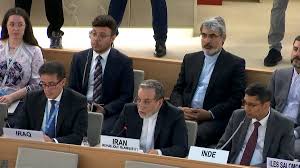Geneva Talks Collapse as Iran Demands End to Israeli Strikes Before Dialogue
Hopes for a diplomatic breakthrough in the Israel–Iran crisis took a major hit on June 21 as Iran’s delegation abruptly walked out of emergency talks in Geneva. The meeting—convened by European powers and attended by representatives from Iran, the United Nations, and neutral mediators—was aimed at restarting nuclear discussions and establishing a ceasefire framework. However, Iranian Deputy Foreign Minister Abbas Araqchi accused Western nations of “enabling Israeli aggression” and declared that “no dialogue can proceed under fire.
The Geneva summit was seen as a last-ditch attempt to de-escalate a conflict that has already claimed over 600 lives across Israel, Iran, and neighboring territories. While France, Germany, and the UK had proposed a temporary 72-hour ceasefire to allow humanitarian corridors and facilitate negotiations, Iran rejected the deal, insisting on a full and permanent halt to Israeli military operations before any talks could resume.
Israeli officials, informed of the outcome via Swiss intermediaries, said they “regret Iran’s unwillingness to engage constructively,” and reiterated that military actions will continue until Iran’s nuclear and missile threats are neutralized. The Israeli government has accused Tehran of stalling diplomacy while covertly advancing its enrichment efforts, especially at its underground Fordow and Natanz sites.
The UN Secretary-General expressed deep disappointment at the breakdown of talks and called for restraint from both sides. Meanwhile, UN aid agencies reported worsening humanitarian conditions in southern Lebanon and parts of western Iran, where hospitals are overwhelmed, and supplies are dwindling.
Geneva diplomats also confirmed that indirect messages from Washington, relayed via European envoys, proposed a “mutual freeze” in hostilities in exchange for IAEA inspection access. But Iranian officials rejected it, saying such an offer lacks guarantees and ignores the impact of ongoing civilian casualties from Israeli strikes.
Analysts now warn that diplomacy may be indefinitely sidelined, increasing the likelihood of a prolonged and potentially regionalized war. Gulf states have begun shoring up defenses, and NATO has called an emergency summit to assess the implications for Europe.
Without diplomatic progress, fears grow that the Israel–Iran conflict could evolve into a broader confrontation with spillover effects on global energy, migration, and regional security.








